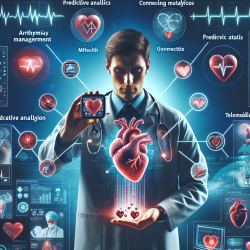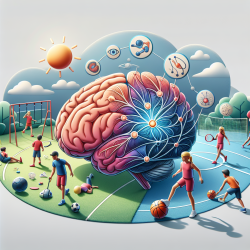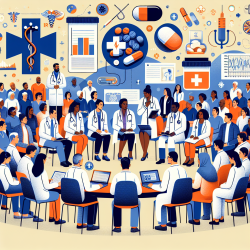Introduction
The landscape of healthcare is continuously evolving with the integration of mobile health (mHealth) technologies. The 2021 ISHNE / HRS / EHRA / APHRS Collaborative Statement highlights the transformative potential of mHealth in arrhythmia management. This blog explores how practitioners can leverage these insights to enhance their skills and improve patient outcomes.
The Promise of mHealth in Arrhythmia Management
mHealth technologies offer innovative solutions for the management of heart rhythm disorders. These tools, ranging from wearable devices to smartphone applications, facilitate real-time monitoring and data collection. They empower patients to engage in self-management, thus promoting a proactive approach to healthcare.
Data-Driven Decision Making
One of the key outcomes of the research is the emphasis on data-driven decision-making. mHealth devices provide continuous data streams that can be analyzed to predict arrhythmia events, thus enabling timely interventions. Practitioners can use this data to tailor treatment plans, ensuring that interventions are both timely and effective.
Encouraging Further Research
The collaborative statement also underscores the need for further research to validate the efficacy of mHealth technologies. Practitioners are encouraged to engage in research initiatives that explore the integration of these tools into routine clinical practice. By contributing to the evidence base, practitioners can help refine these technologies and expand their applications.
Operational Challenges and Solutions
While mHealth holds great promise, there are operational challenges that must be addressed. These include issues related to data privacy, interoperability, and the integration of mHealth data into existing healthcare systems. Practitioners can play a crucial role in advocating for solutions that address these challenges, such as standardized protocols and robust cybersecurity measures.
Conclusion
The integration of mHealth technologies in arrhythmia management represents a significant advancement in patient care. By harnessing these tools, practitioners can improve diagnostic accuracy, enhance patient engagement, and ultimately achieve better health outcomes. Continued research and collaboration will be essential in realizing the full potential of mHealth.
To read the original research paper, please follow this link: 2021 ISHNE / HRS / EHRA / APHRS Collaborative Statement on mHealth in Arrhythmia Management: Digital Medical Tools for Heart Rhythm Professionals.










